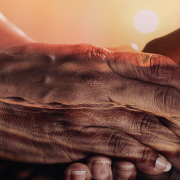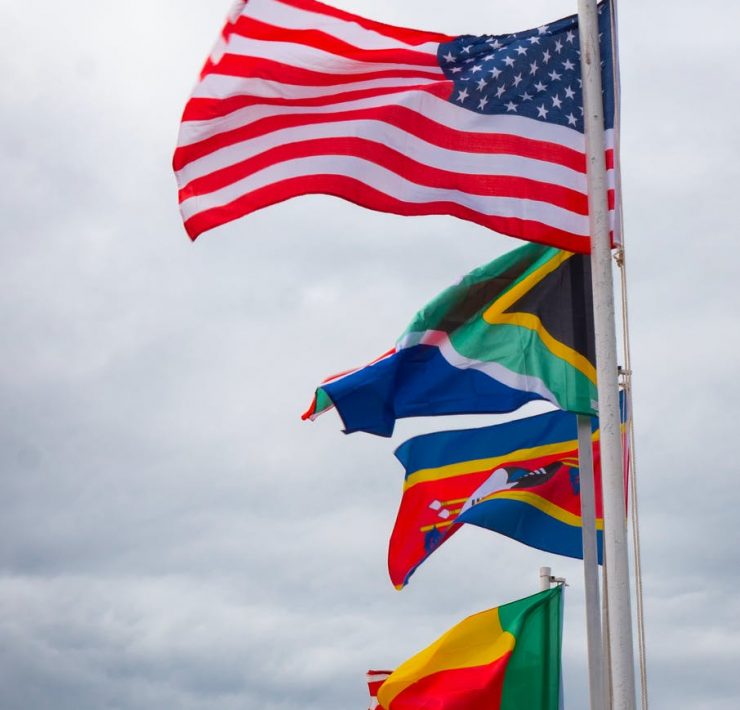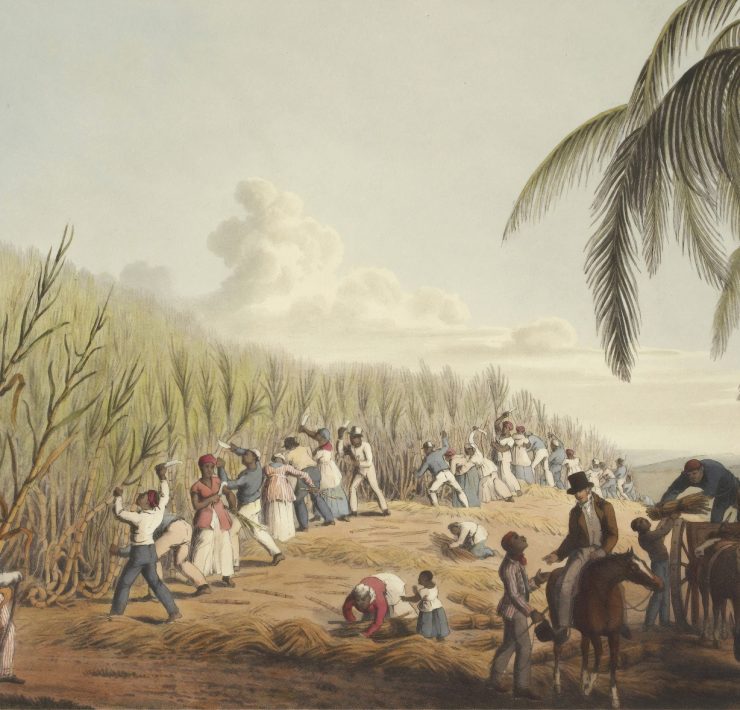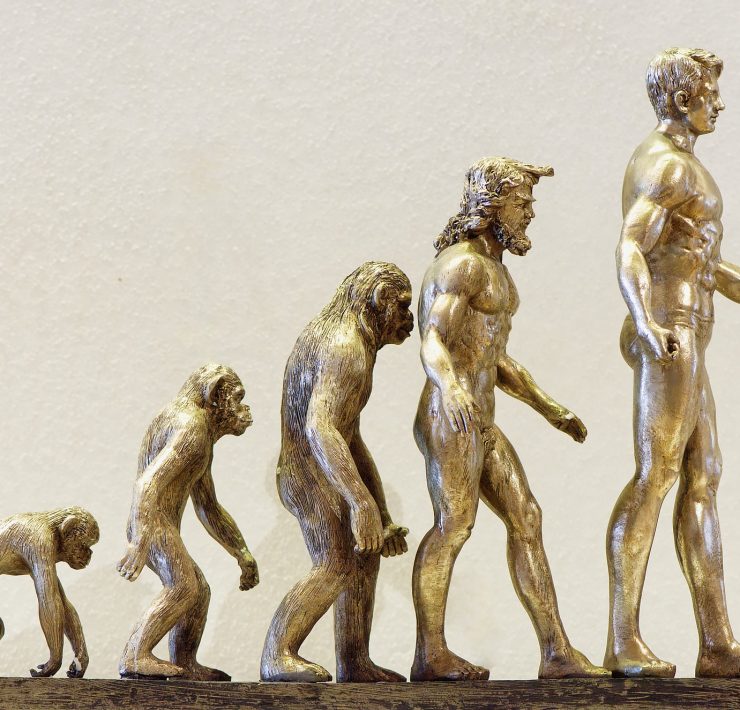Free but in Chains

Abel Merawi is from Addis Ababa. He is an English…
Part IV: Personal Bondage
Sounds and images are streaming from the screen in front of you. You are not watching anything in particular; you are just watching TV! You keep flicking, the remote control glued to your hand and appearing to be part of it. Your other hand scrolls through social media on your ‘smart’ phone, operating with the same objective as the other. The sole purpose is filling the void of silence and killing time. The dreaded silence is unbearable since it represents life – the real world. Time no longer represents life; it rather is a prison sentence that ends with each day. You crave the media for entertainment, but not for content. Your friends too serve the same purpose of detaching you from reality. It is not intimate companionship that you seek in friendship. You want them to be fun and loud enough to cancel reality. Your ideal partner is one who knows how to have fun – a real-life clown! You don’t have to bother with future goals, the market and advertisement agencies are there to prescribe it for you. You work because you need to have trendy products, and the market has legions of new commodities. The little voice in your head is the enemy. You are part of the modern society that consented to substitute meaning for pleasure. You are both prisoner and guard in this personal bondage.
To comprehend the concept, I begin with this melancholic description by T.S. Eliot, The Hollow Men (1925):
We are the hollow men
We are the stuffed men
Leaning together
Headpiece filled with straw. Alas!
Shape without form, shade without colour,
Paralyzed force, gesture without motion; . . .
The ultimate success of any social, political, religious and economic system is making you part of it. The utopia of the oppressor becomes a reality when you believe – believe you are a slave. When you accept the fate of your life as written by your master, there is no need for fetters and control. You control yourself by developing a ‘pang of consciousness’ whenever you even think of displeasing your oppressor. I call this a state of ‘peaceful subjugation’. Perhaps a few examples will loom light on the meaning.
Whoever has dominion over another wishes to have a subject who not only follows but even loves following. Even in the most affectionate relationship between parents and children, it is often the desire of parents to have children who lovingly obey them. The parent wishes to create the child in one’s image! The same goes for most educators. They want to write the life script of their disciples and the ‘good’ student is the one who strictly obeys. The oldest story is of the religious leaders who wish to have followers who adherently follow their teaching. Throughout history, the leader of the people came in different guises: beginning from emperor or empress to the democratically elected politician. They share the same desire of having subjects that unquestioningly follow. At times, even the activist who opposes the system is no deferent from the defender of the system. The goal is to make the world accept their version of the world! The fear of punishment or eternal damnation keeps the rebel in line, but the ultimate goal is to have docile and fervent followers.
The modern conception of the world has finally made this dream a reality. Currently, to bend the world to your will, you don’t need ferocious soldiers but lobbyists. Lars Svendsen in A Philosophy of Boredom (2008) writes, “We are desperate in our search for differences. Fortunately, or regrettably, the advertising industry is there to save us with new distinctions. Advertising is essentially nothing more than creating qualitative differences where there are none.” This is how we gradually substitute commodity for meaning. The wise men who constituted the king’s circle have now spread across the world. They are the lawyers, media specialists, economic experts, or even funded academics.
To reach the populace, the mainstream media as the greatest weapon at their disposal. In its infant stage, the private media served as the ‘watch dog’ and as the voice of the people. However, it didn’t take long before most became the voice of the capitalists. It is no doubt that funding and advertisement are the lifeline of private media; the point is how to attain them. As their survival depended on whom they pleased or offended, most succumbed to the pressure of the corporate. Moreover, it gradually became difficult to please the people who constantly needed to be entertained like children. Consequently, content for sacrificed for pleasure.
I remember how absurd it was for me to learn in journalism classes that ‘sex and violence’ sells. I eventually learned that the majority of people were desirous of ‘scandal and violence’ instead of ‘fidelity and peace’. The audience was in need of thrill and the media won their favor by giving them exactly what they wished. Alas! The modern day plague of consumer capitalism has finally created people who no longer want freedom. Nevertheless, there are still some media outlets that try to serve as the voice and conscience of the people. I know they exist because I am writing this article for one of them. Yet it generally seems like a losing battle, and if this sad day is finally to envelop the world, it will be a huge loss for humanity.
It is in this web of sly forces that we fall into personal bondage. This is a great concern because we no longer know and feel our slavery. The previous three articles focused on external forces that infringe personal freedom. Their success or failure depends on how we internalize them. Nietzsche in Thus Spoke Zarathustra remarks, “The one goeth to his neighbour because he seeketh himself, and the other because he would fain lose himself. Your bad love to yourselves maketh solitude a prison to you.” We the modern are constantly seeking approval from others and we define ourselves through the eyes of others. We fear solitude because it isolates us from the crowd. The power of external forces of bondage is in creating intersubjective reality – a shared or collective reality that appears to be as real as objective reality. This is why personal bondage is considered as the last point of departure in our discussion. Individuals must constantly engage in ‘reevaluation of values’.
In summation, we are trapped in a mental prison where we accept the narratives of authorities. The great African American writer Toni Morrison calls the powerful external forces, the ‘master’ narrative. This is the dominant ideology that rules the generation as a master. Currently, we are living under the master narrative of consumer capitalism. Mostly, we react in two ways: passivism and activism. To become passive is to accept the master narrative of our times, and let them guide our lives. In this context, activism is constantly engaging in any activity or action to escape reality a moment of reflection. The solution is self-awareness. The renowned psychologist Rollo May said it well: “Our emphasis on self-awareness certainly includes acting as an expression of the alive, integrated self, but it is the opposite to activism — the opposite, that is, to acting as an escape from self-awareness.” Thus, we should work towards self-awareness, which is expressed by integrity. We must have moral soundness and integration within ourselves.
What's Your Reaction?
Abel Merawi is from Addis Ababa. He is an English literature teacher, freelance writer/reporter for Ezega.com and an Amharic-English translator and editor. He also writes for www.msingiafrikamagazine.com. You can reach him via: abelmerawi4@gmail.com


















